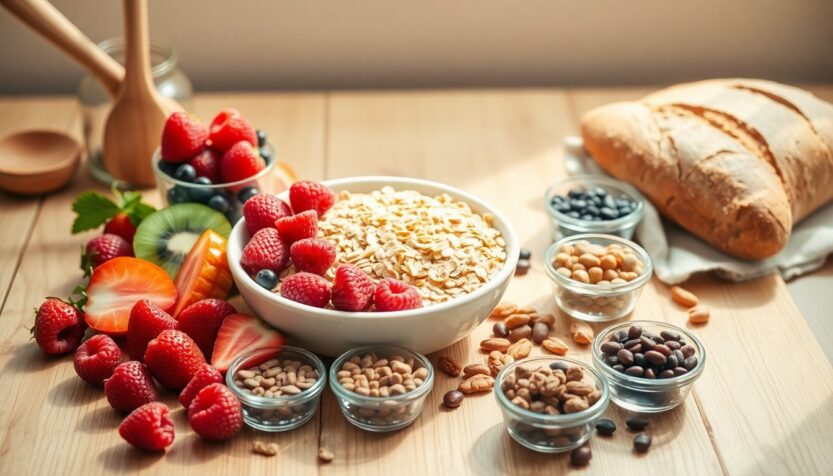While most people recognize the importance of protein in nutrition, another essential nutrient often receives less attention: fiber. Despite being frequently overlooked, fiber is crucial for maintaining overall health and well-being. This article explores the significance of fiber and offers strategies for increasing its presence in daily meals.
Fiber is a type of carbohydrate that the body cannot digest. Unlike other carbohydrates that break down into sugar molecules, fiber passes through the digestive system intact. This characteristic plays a significant role in promoting digestive health, managing weight, and potentially preventing certain diseases.
The myriad health benefits of fiber
Incorporating adequate fiber into the diet provides numerous health benefits. Primarily, it supports a healthy digestive system by encouraging regular bowel movements and preventing constipation. A fiber-rich diet reduces the likelihood of gastrointestinal issues.
Additionally, fiber aids in weight management. Foods high in fiber tend to be more filling, keeping individuals satisfied for longer periods. This can result in reduced overall calorie intake, promoting effective weight control. Furthermore, a diet rich in fiber can help lower cholesterol levels, thus decreasing the risk of heart disease.
Types of fiber and their functions
Understanding the various types of fiber is essential for maximizing its benefits. There are two main categories: soluble fiber and insoluble fiber. Soluble fiber dissolves in water, forming a gel-like substance in the gut that can help lower blood sugar levels and cholesterol. Good sources of soluble fiber include oats, beans, apples, and citrus fruits.
Conversely, insoluble fiber does not dissolve in water. Instead, it adds bulk to the stool and facilitates the movement of food through the digestive tract. Whole grains, nuts, and vegetables are excellent sources of insoluble fiber. A balanced diet should encompass both types for optimal health.
How to increase fiber intake
Increasing fiber consumption can be enjoyable and straightforward. Here are practical tips to help achieve daily fiber goals:
- Start your day right:Select a breakfast that includes whole grains, such as oatmeal or whole-grain toast, to initiate your fiber intake.
- Snack wisely:Choose fruits, vegetables, and nuts as snacks rather than processed options. Apples, carrots, and almonds are all fiber-rich choices.
- Include legumes:Incorporate beans and lentils into soups, salads, and side dishes for an additional fiber boost.
- Experiment with whole grains:Replace refined grains with whole grains in meals. Consider brown rice, quinoa, or whole-grain pasta.
Mind the transition
When increasing fiber intake, it is vital to do so gradually. A sudden increase in fiber can cause digestive discomfort. Aim to introduce fiber-rich foods slowly over several days. Additionally, ensuring adequate hydration is crucial, as water helps fiber function effectively.
While protein often dominates discussions about nutrition, it is essential to acknowledge the critical role of fiber in maintaining health. By integrating a variety of fiber-rich foods into the diet, individuals can reap numerous health benefits, including improved digestion, effective weight management, and enhanced heart health. Embracing fiber is vital to a balanced nutritional approach.






